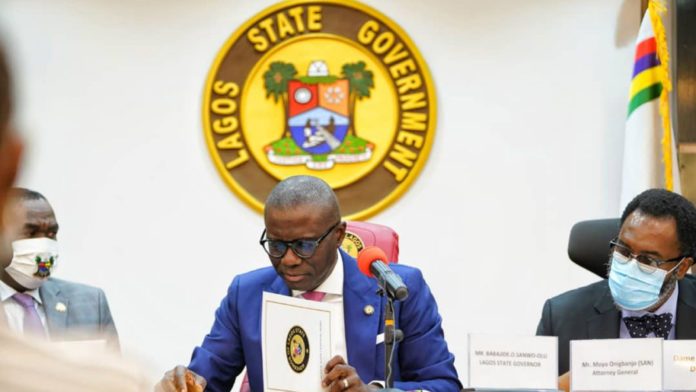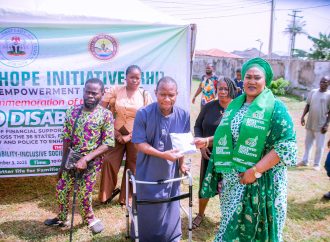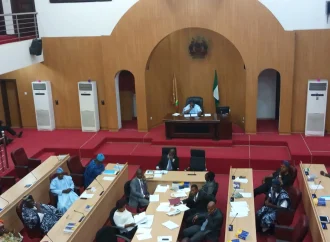Lagos State to Begin Full Enforcement of Single-Use Plastics Ban July 1, 2025 The Lagos State Government has announced that it will commence full enforcement of the ban on Single Use Plastics (SUPs) starting July 1, 2025, as part of its broader commitment to promoting environmental sustainability and public health in Nigeria’s most populous state.
Lagos State to Begin Full Enforcement of Single-Use Plastics Ban July 1, 2025

The Lagos State Government has announced that it will commence full enforcement of the ban on Single Use Plastics (SUPs) starting July 1, 2025, as part of its broader commitment to promoting environmental sustainability and public health in Nigeria’s most populous state.
This was revealed in a statement issued on Monday by the Commissioner for the Environment and Water Resources, Tokunbo Wahab, who said the state had undertaken extensive stakeholder engagement over the last 18 months to prepare for this significant policy shift.
“From July 1, 2025, Lagos State Government will commence full enforcement of the ban on Single Use Plastics,” Wahab stated. “We’ve been intentional and strategic with 18 months of dialogue, engagement, and transition. Now, it’s time to act.”
Eradiri Slams Governor Diri, Urges Sim Fubara To Apologise To Wike Over Political Fallout
The Commissioner emphasized that the policy was not a rushed decision, but the outcome of deliberate and inclusive consultations with marketers, producers, environmental groups, and key stakeholders in the plastic supply chain. The government, he noted, has been guided by global best practices and the urgent need to reduce the environmental footprint of plastic waste in Lagos.
“This is about environmental responsibility,” Wahab said. “And we have given ample time to align with global standards. What is unacceptable elsewhere cannot become the standard in Lagos. We must protect our future and do what is right for the greater good.”
Building on Momentum: Lessons from the Styrofoam Ban
The new plastic ban follows the successful enforcement of the ban on styrofoam containers, which was introduced earlier in the year. Wahab stated that the government would bring the same level of determination, monitoring, and enforcement to this initiative.
“We’re not here to score points. We’re here to do the work,” he emphasized. “Just like with the styrofoam ban, we will insist on accountability and responsibility.”
He noted that the state’s resolve to clean up its environment had already begun to yield results, with noticeable improvements in waste management, drainage cleaning, and community sensitization.
Wahab further urged the public, especially businesses that deal in packaging and retail, to adjust their supply chains and explore eco-friendly alternatives, warning that violators would face strict penalties once enforcement begins in July.
Why the Ban Matters
Single Use Plastics (SUPs), including items like plastic bags, straws, disposable cutlery, plastic sachets, and water pouches, are widely acknowledged as major contributors to environmental pollution. In Lagos, where population density and consumer activity are high, SUPs clog drainage systems, pollute water bodies, and contribute to urban flooding—particularly during the rainy season.
The ban aligns with global sustainability efforts and the United Nations Sustainable Development Goals (SDGs), particularly those related to clean water, responsible consumption, and climate action. It also reflects a growing movement among Nigerian cities to phase out environmentally harmful products in favor of biodegradable and reusable alternatives.
Public Reactions and Readiness
While many environmentalists have welcomed the policy as a bold and necessary step, some business owners have expressed concerns about the cost and availability of sustainable alternatives. In response, the state government has reassured the public that the long transition period was designed specifically to allow market adaptation, supplier changes, and public awareness campaigns.
“We’ve had 18 months of transition and planning,” Wahab reiterated. “This is not a surprise move. We expect everyone—producers, sellers, and consumers—to comply.”
The government has also announced plans to intensify public education campaigns, encouraging the use of alternatives such as paper bags, reusable shopping bags, glass bottles, and biodegradable packaging.
Enforcement and Compliance
As July 1 approaches, the Lagos State Waste Management Authority (LAWMA) and other regulatory agencies are expected to increase inspections across markets, supermarkets, eateries, and manufacturing plants to ensure compliance. Violators risk fines, product seizures, and possible business closures if found to be flouting the new regulations.
Environmental advocacy groups have praised the state for taking leadership in Africa’s fight against plastic pollution and have called on other states to emulate Lagos in protecting both people and the planet.
Commissioner Wahab concluded his statement with a vision of a healthier, cleaner, and more sustainable Lagos:
“A cleaner, healthier Lagos is within reach if we all play our part.”
The upcoming ban marks a critical shift in how Africa’s largest commercial hub manages waste, protects the environment, and positions itself for a more eco-conscious future.


















Leave a Comment
Your email address will not be published. Required fields are marked with *